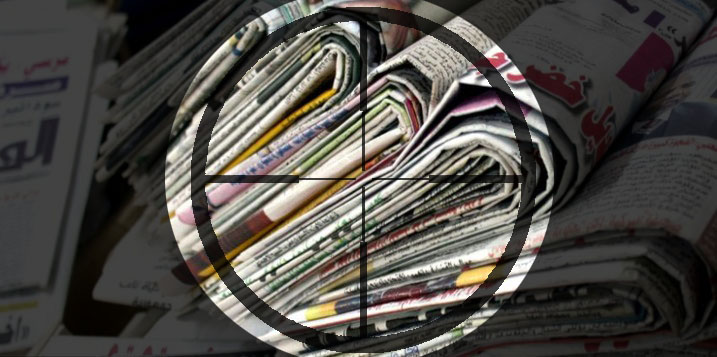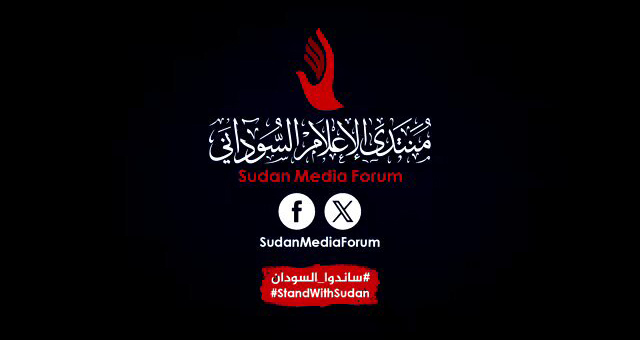Print journalism in Sudan: The struggle to survive crises and an uncertain post-war future

Image: RD
Prepared by Al Ayam newspaper for Sudan Media Forum
For more than a century, print newspapers in Sudan have played a pivotal role in shaping public opinion and reflecting the people’s voices on various issues. It has also played an important role in disseminating facts and providing information to readers with high professionalism. Newsstands were landmarks in Sudan’s various cities, and forums for lovers of reading and browsing daily editions.
However, this situation began to change significantly before the outbreak of the last war, specifically during the period of the “former regime”, when a large number of newspaper kiosks were removed, a systematic blockade was imposed on the press by increasing taxes and customs on printing inputs, restricting its freedom of work to daily and direct censorship, and enacting laws restricting press freedoms. As a result, newspaper production has become very expensive compared to its revenues, and their prices have risen significantly, negatively affecting the volume of circulation. With the outbreak of war in April 2023, print newspapers stopped publishing in Sudan for the first time since its establishment more than 120 years ago.
Amid this tragic situation, the war has imposed a darker reality on the print press and journalists, raising legitimate questions about its post-conflict future: Has the war hammered the final nail in the coffin of the print press, or is it capable of resisting and recovering to continue its mandated role?
Opinions on the state of the press before the war:
Ihsan Abdelaziz, journalist and media officer at the Women Against Injustice Initiative, believes that the media in general in Sudan suffered from a lack of independence and strict censorship before the war. She points out that the glorious December revolution provided a margin of press freedoms, but this margin quickly faded after the coup of October 25, 2021, so that censorship of newspapers returned as it was throughout the period of the “former regime”. Ihsan added that paper newspapers were the most affected compared to other media, as some materials were deleted before publication, and sometimes newspapers were completely confiscated even after they were printed because they contained materials that did not satisfy the ruling authority.
For her part, journalist and human rights activist Awatif Ishaq believes that targeting the press has pushed readers to turn to electronic journalism. She explains that paper newspapers were already suffering before the war due to the high cost of production and their ownership of private companies with a purely investment orientation, which led to a continuous increase in their prices. This led to the reluctance of a large number of readers to follow social media and digital media platforms, which competed strongly with paper newspapers, prompting some of these newspapers to create their own websites in parallel with the continued issuance of paper copies.
The journalist and human rights activist attributed feelings Ramadan the low circulation of newspapers to the multiple restrictions imposed on them: “Before the war, newspapers faced great obstacles and many restrictions, whether legal, security or economic. Despite all this, the journalists continued their work and fulfilled their mission to the fullest.”
The impact of the war on paper newspapers:
The war has had a devastating and direct impact on the future of print journalism, increasing the magnitude of threats that may reduce its chances of a post-conflict return. Ihsan Abdel Aziz believes that the war has allowed the official voice of the parties to the conflict to be the sole dominant, saying: “The war has a great impact on the media in general, and on print newspapers in particular. The only voice heard has become the official media with its lies, lack of credibility and its absence of the facts of what is happening on the ground.”
Awatif Ishaq agrees that the impact of the war was catastrophic for the press and journalists, especially since the vast majority of press institutions were based in the capital, Khartoum. “Since the first day of the war, print newspapers have stopped completely, because there are more than 90 percent of media organizations in Khartoum,” says Awatef. This halt has led to the displacement and loss of jobs for hundreds of journalists, and some have moved to work in other, safer areas or outside the country.
Nour, a researcher and media professional, asserts that the war has affected the print press in several crucial ways, such as the cessation of printing presses, the interruption of the import of basic printing inputs (paper, inks), the continuous power outages, and the insecurity that made the distribution of newspapers impossible. In addition, advertisements and sales have come to an almost complete halt as a result of the deteriorating security situation, and the difficulty of field coverage of events due to high risks.
Despite this grim reality, Ramadan feelings consider that this pause is temporary, and that Sudanese society cannot bypass the pivotal role of print journalism. “The print press is very deeply rooted in the conscience of Sudanese society, which used to start its day by buying and reading the newspaper. Readers flocked to kiosks, bookstores, and newsstands to get a copy of their favourite newspaper.” She added that the print press still represents a large labor market and a source of income for many journalists and workers in press institutions and contributes by nature to the formation of public opinion, the provision of information and the follow-up of important issues and events.
Are there chances for the return of the print press after the war?
Mr. Noor believes that the chances of the return of paper newspapers in their daily form after the war seem very slim in the foreseeable future. He expects that if she returns, she will likely be weekly or bi-monthly at first. He stresses that the return of print newspapers, or even the return of the “migrant press” to work from inside Sudan, depends mainly on the results of the war and the way it ended, because its return requires a climate of press and public freedoms, in addition to a degree of political and economic stability.
Awatif Ishaq points out that newspaper circulation was already low before the war due to high prices, which brought about a change in the behavior of readers, who turned heavily towards electronic media. “Right now, we all know that Sudan’s economy has deteriorated catastrophically, which will inevitably affect the ability of institutions to produce newspapers. Media institutions, companies and printing presses have been destroyed or looted, and rebuilding or rehabilitating them requires a lot of money, concerted efforts, and perhaps external support.” However, she does not lose hope completely, stressing that the revival of the print press requires strong will, cooperation and great support from all concerned parties.
Ramadan’s feelings support her cautious optimism about the important historical role of print journalism and the determination and contributions of women journalists who, according to her, have faithfully performed their mission against all odds. “We hope that Her Majesty will return to her court after the end of the war, so that her luster and elegance will return with her and her readers will browse it again,” she said. She points to the importance of providing basic needs and the elements of return, such as: the availability of stable Internet service, the presence of professional journalists and journalists, the availability of headquarters and production tools, and ensuring a safe and appropriate work environment for the production of professional journalistic content.
Mashaer concludes by emphasizing that paper newspapers, if they return, will provide a large labor market for many associated jobs in the fields of administration, finance, distribution, and others, as these are stand-alone institutions that employ a large number of workers and provide them with vital job opportunities. It stresses that the existence of a professional and independent print press necessarily requires the existence of a State of law and institutions based on the protection, respect and application of the law, and the provision of the necessary protection for women and journalists in the performance of their work.

This report is prepared by Al Ayam newspaper and published via the platforms of Sudan Media Forum member organisations to shed light on the situation of journalism and journalists in Sudan.
#SilenceKills #الصمت_يقتل #NoTimeToWasteForSudan #الوضع_في_السودان_لايحتمل_التأجيل #StandWithSudan #ساندوا_السودان #SudanMediaForum #PressFreedom











 and then
and then